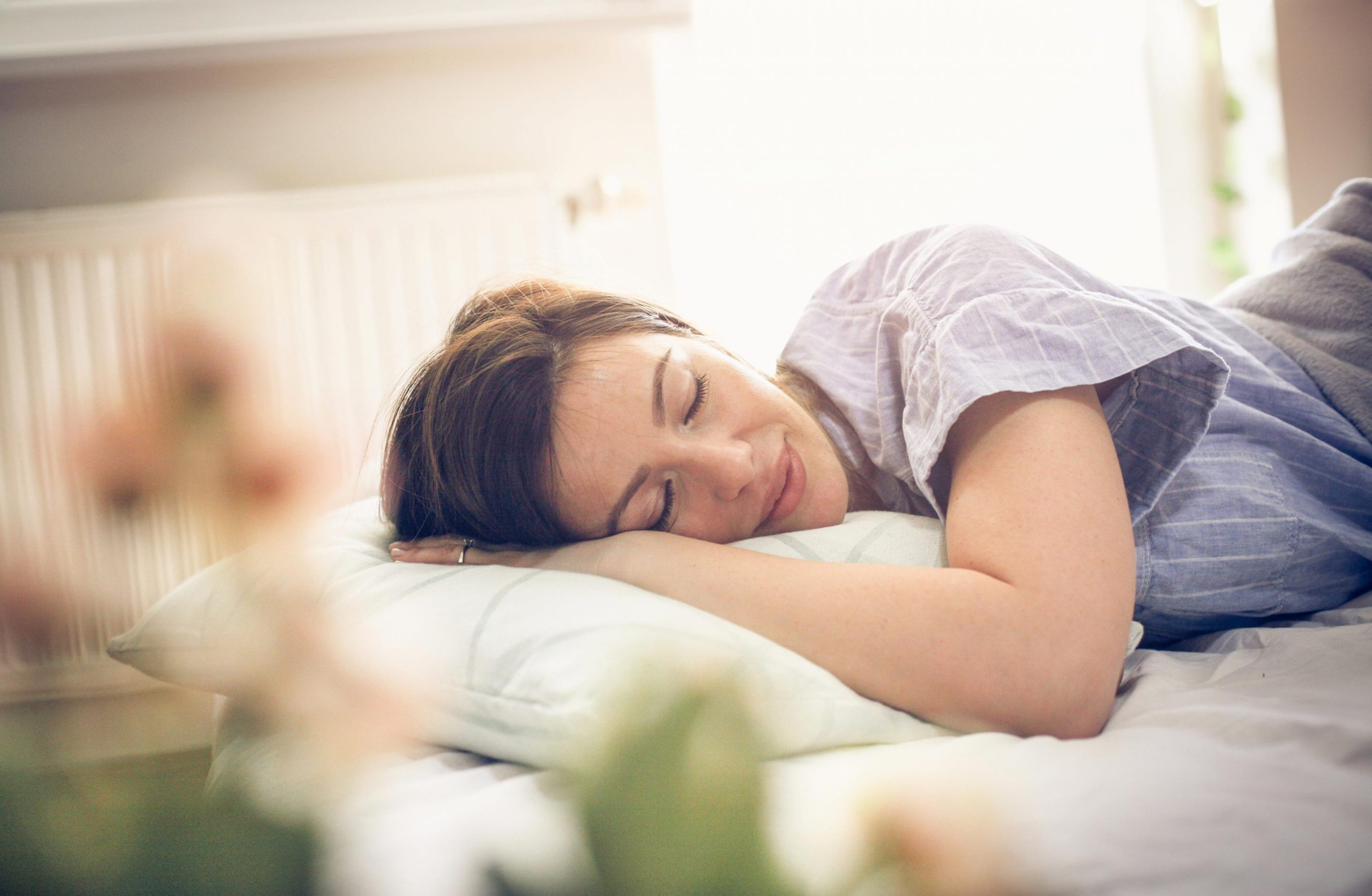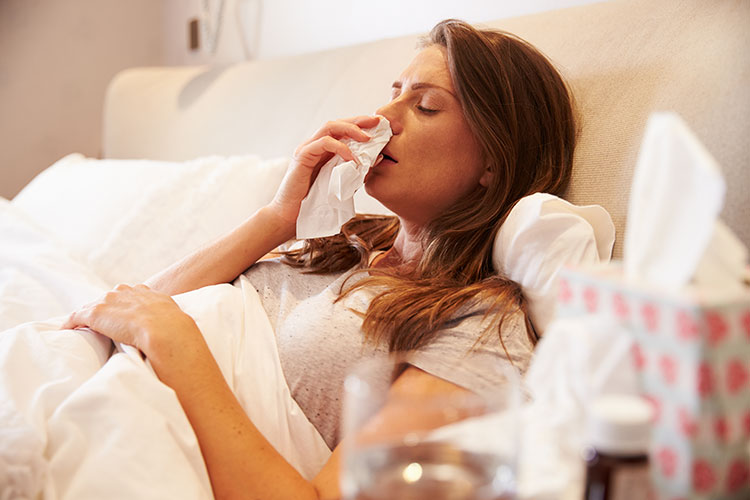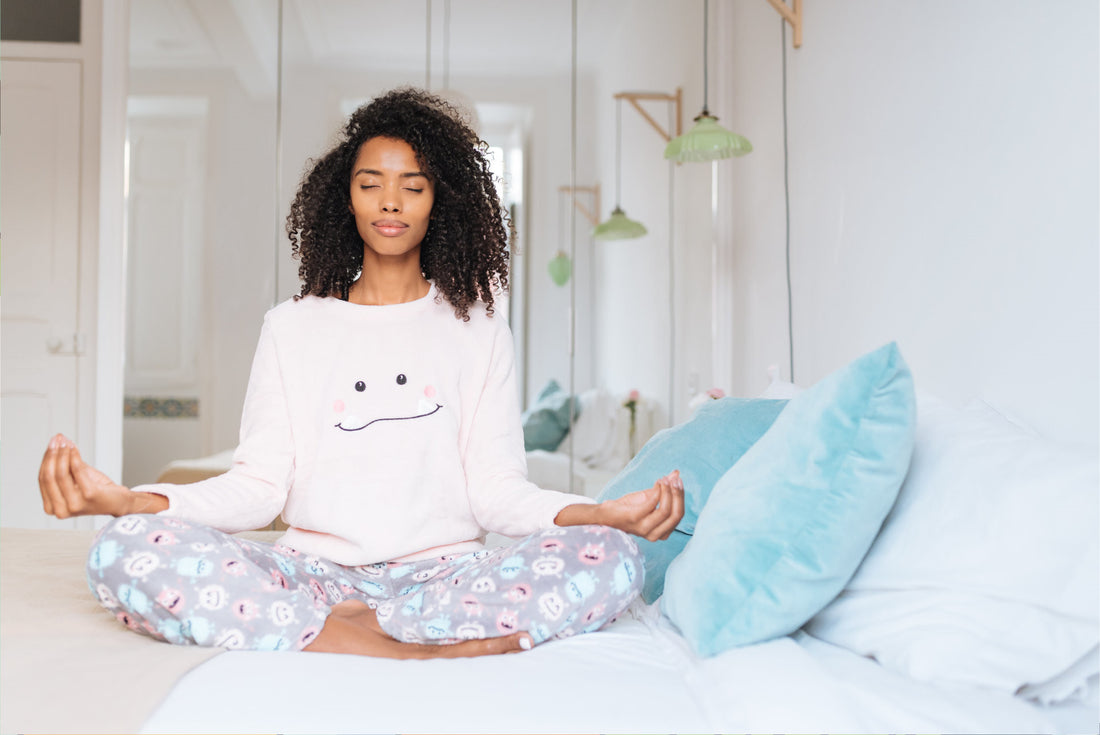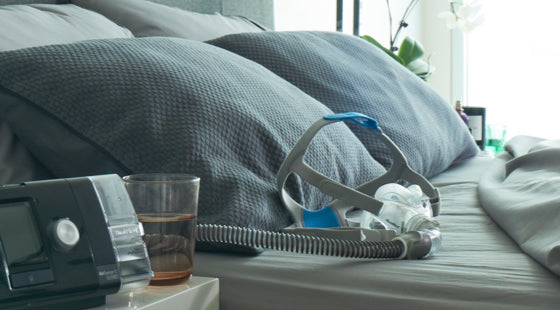News
How Aging Changes Your Sleep Patterns
wp:paragraph If you are over age 65 and noticing that your sleep is not what it used to be when you were younger, you are not alone. /wp:paragraph wp:paragraph Many older adults tend to notice changes in their sleep as they age, and at least half experience at least one sleep issue, whether it’s insomnia, sleep apnea or something else. Older adults may also notice they take more frequent naps and spend less time in deep sleep. Rest assured, this is completely normal. /wp:paragraph wp:paragraph Good quality sleep for older adults is essential to your overall well-being, especially as newer health issue come to light with age. /wp:paragraph wp:paragraph Here are four factors that may contribute to changes in sleep patterns amongst older adults: /wp:paragraph wp:paragraph Poor sleep habits: This is very common with older adults, whether you are newly retired and figuring out your new normal, or just enjoying more downtime than before. Make sure you go to bed and wake up at the same time each day, and that you practice good sleep hygiene. /wp:paragraph wp:paragraph Medications: This is a common problem for many older adults that is easily treatable. If you take medication for other health issues and you are noticing it’s affecting your sleep, make sure you speak to your doctor for advice. /wp:paragraph wp:paragraph Stress: Aging tends to bring on many life changes, between loosing a loved one, moving, or dealing with an unexpected health condition, all of which can negatively affect your sleep. Make sure you find ways to properly cope with stress, and make sure you seek external help if necessary. /wp:paragraph wp:paragraph Lack of physical activity: Staying active into your golden years is important, and sleep may not come easily if you are not getting in enough daily movement. While you may not be able to keep up with the physical activity you did when you were younger, make sure you find activities that you enjoy and will help you to get in your daily movement. /wp:paragraph
about How Aging Changes Your Sleep PatternsSleep Apnea and Seasonal Allergies
Are you suffering from seasonal allergies? You are not alone. Many people have to deal with the unpleasantness of allergy symptoms in the early spring, which can interfere with your ability to get a good night’s sleep. Allergies can be even worse for people who suffer from sleep apnea, since your airway is already compromised during sleep. A lot of allergy symptoms tend to worsen and cause nasal congestion, which can dry your mouth out or block your airway. Not a good thing with sleep apnea, especially if you use a CPAP machine to help you sleep at night. Luckily there are a few things you can do to help give some relief to your symptoms so you can sleep better at night. Here are a few tips: Take advantage of humidification: As great as the CPAP is for helping you sleep, it can also dry out your nasal passages, which can be extremely uncomfortable and worsen your allergy symptoms. Using a humidifier with your CPAP can help to keep your airway moist enough to promote proper breathing during sleep. Keep your CPAP mask in great condition: Make sure you are cleaning your CPAP mask and other parts on a regular basis. Sleeping in a dirty mask will only spread bacteria and germs through your airway as you sleep and make your allergies worse. Also, if your CPAP has a filter, make sure that it is changed on a regular basis as well. Take some medications to help relieve your symptoms: Taking an over-the-counter antihistamine before bed can help to alleviate allergy symptoms and help you sleep better at night. But if you are using CPAP therapy to sleep, make sure you clear this with your doctor first. Be mindful of your sleeping environment: If the pollen outside is particularly strong and bothering your allergies, don’t sleep with your windows open as this will only make your symptoms worse. Keep your windows closed at night and keep your bedding fresh and clean will help as well.
about Sleep Apnea and Seasonal AllergiesHow sugar affects your sleep
wp:paragraph If you just overindulged in some of the delicious Easter chocolate and desserts, take note! We all know how sugar is bad for you, but did you know that too much sugar can have a negative effect on your sleep? /wp:paragraph wp:paragraph Despite this, many of us simply cannot live without some form of sugar, whether you have it in your coffee, a mid-afternoon pick me up or if you like to have something sweet before bedtime. Ever had the “sugar crash” where you feel sleepy after eating too many sweets? This is not so good for sleeping as this can not only cause insomnia but poor sleep quality in general. Sugar is known to give you a temporary boost of energy, followed by feelings of sleepiness. /wp:paragraph wp:paragraph Here are three ways to prevent sugar from interfering with your sleep: /wp:paragraph wp:paragraph Consuming too many sweets before bed? Not a good idea: Although sugar may make you feel sleepy, it should NOT be used as a sleep aid as this will mess with your sleep cycle and cause you to feel groggy the next day. If you need to have a snack before bed, consider a piece of fruit to combat your sweets cravings. Warm milk or herbal tea before bed can also be a good idea. /wp:paragraph wp:paragraph Don’t forget to maintain a healthy diet: Eating a balanced diet, which includes all the necessary vitamins and nutrients, will help you to maintain a regular sleep cycle, in addition to staying hydrated, getting in some physical activity, and starting your day with a proper nutritious breakfast. /wp:paragraph wp:paragraph Enjoy your favorite sweets in moderation: Let’s face it, cutting out sweets is harder than it looks, and simply unrealistic for many people. There is nothing wrong with enjoying your favorite dessert every now and then, just be smart about it! Stick to smaller portions of your favorites and consider some sugar-free alternatives. /wp:paragraph wp:paragraph Contact us for more information. /wp:paragraph
about How sugar affects your sleepThe Link Between Sleep and Self-care
wp:paragraph The idea of self-care has gained a ton of popularity in recent years and has been great for people to prioritize their overall health and wellness in many ways. Self-care is different for everyone, whether through a relaxing bubble bath, reading your favourite book, binge-watching your favourite TV show, eating a delicious healthy meal. /wp:paragraph wp:paragraph Do you include sleep as a part of your self-care routine? Sleep is indeed one of the most important forms of self-care, as it has so many benefits that include boosting your immune system, improving your mood and helping with your heart function, just to name a few. Here are a few tips for incorporating sleep into your self care routine /wp:paragraph wp:list wp:list-item Build a solid sleep routine: Our internal clocks thrive on routine for proper sleep and a good routine will help you to take the time to properly wind down before bedtime and sleep better. Everyone’s routine will be different based on your individual needs, preferences and daily schedule but try to keep it consistent and realistic for you. /wp:list-item /wp:list wp:list wp:list-item Create a relaxing sleep environment: The bedroom is meant to be a place that will promote relaxation and calmness. If your sleeping environment causes you stress or anxiety in any way, then this will have an overall negative effect on your sleep. A few ways to help with this include keeping your bedroom dark, diffusing some relaxing essential oils and keeping the temperature on the cooler side. /wp:list-item /wp:list wp:list wp:list-item Limit technology: Many people like to spend time on their electronic devices before bedtime but avoid doing this! Not only can this cause unnecessary anxiety, but the light on your devices can interfere with your sleep cycle and potentially lead to insomnia and daytime fatigue. Try to power off all your devices at least a half hour before bedtime and find another activity that will help you wind down before bedtime, such as yoga or reading. /wp:list-item /wp:list wp:list wp:list-item Practice healthy daytime habits: Maintaining healthy diet and exercise habits are essential to a good night’s sleep, however there are a few extra things you can do to improve your sleep beyond that. Try and limit daytime naps and avoid all forms of caffeine at least 6-8 hours before bedtime. Also limit alcohol and other recreational drugs before bedtime such as tobacco and cannabis that have been known to interfere negatively with your sleep cycle. /wp:list-item /wp:list wp:paragraph Contact us for more information. /wp:paragraph
about The Link Between Sleep and Self-careSleep Differences in Women
wp:paragraph In honour of International Women’s Day on March 8th, we will be looking at sleep differences between women and men. While it may be easy to think that something like sleep affects both genders the same way, this is not necessarily the case. Here are a few of the major differences in sleep habits among women. /wp:paragraph wp:paragraph Amount of sleep required /wp:paragraph wp:paragraph The average adult requires around 7-9 hours of sleep each night, though women tend to do better with a little more than that. What you may not know is that women have more trouble fulfilling this requirement more than men do. This is often because of a few minor differences in both the REM sleep cycle and the circadian rhythm (AKA your internal clock) for women. While the differences are very subtle, it can still add up and affect a woman’s sleep cycle significantly more. /wp:paragraph wp:paragraph Insomnia and other sleep disorders /wp:paragraph wp:paragraph This includes sleep apnea, and chronic insomnia just to name a few. Did you know that women are 40% more likely than men to experience insomnia in their lifetime? Insomnia in women also comes with more symptoms than in men. And let’s not forget about sleep apnea, while it is diagnosed in men more often, women can still get it too and sadly, a lot of sleep apnea cases in women go mis-diagnosed because of how common it is in men. /wp:paragraph wp:paragraph Hormones /wp:paragraph wp:paragraph One of the biggest factors of sleep differences amongst the genders! A shift in hormone production throughout a woman’s life can create sleeping issues. This starts as early as puberty, once a woman starts menstruating. A drop in hormone production before a woman’s menstrual cycle can cause physical and emotional effects, which include a lack of sleep. Pregnancy also brings a significant change in hormone production that can interfere with a woman’s sleep cycle not only throughout pregnancy, but in the post-partum stage as well. Finally, menopause has been known to create many sleep disturbances in women, thanks to many symptoms such as hot flashes and night sweats. /wp:paragraph wp:paragraph Contact us for more information. /wp:paragraph
about Sleep Differences in WomenAn Overview of CPAP Supplies and Parts
wp:paragraph If you are newly diagnosed with sleep apnea, your doctor may have prescribed a treatment called a CPAP machine, which stands for Continuous Positive Airway Pressure and exhibits a continuous air flow through your system to prevent sleep apnea episodes. If you are new to the CPAP then you may be feeling a little overwhelmed by everything that helps it to function successfully. So here is a little overview of all the important parts of a CPAP machine: /wp:paragraph wp:paragraph The machine: The most important part as the other parts will not work without it. The level of air flow set by your doctor will be programmed on the machine and can only be changed by your medical team. /wp:paragraph wp:paragraph The mask: There are many different types of masks that are suitable for different preferences, take the time to find one that will suit your personal preference. /wp:paragraph wp:paragraph Tubing: An essential part for connecting the mask to the power supply. /wp:paragraph wp:paragraph Mask liners/cushions: Since the mask will be sitting on your face for several hours at a time, the lining or cushions on the mask will make for a more comfortable user experience. /wp:paragraph wp:paragraph Humidifier (if applicable): While this may not be used all the time, the humidifier keeps your airway moist as a dry airway is extremely common amongst CPAP users. When and how this is used will depend on not only the strength of your prescription, but also external factors such as climate. /wp:paragraph wp:paragraph Here are a few other parts that are good to have on hand: /wp:paragraph wp:paragraph Backup power supply: Most CPAP machines can be plugged into a power source in the wall, but having a backup is always good in case the power goes out while you are sleeping. /wp:paragraph wp:paragraph Portable battery pack: These can be great for travel so that you still get a good sleep away from home. /wp:paragraph wp:paragraph Cleaning supplies: Yes, your CPAP will need to be cleaned on a regular basis to function well and prolong the lifespan of the parts. It’s best to have cleaning supplies specifically designated for your CPAP that are not used for other items in the house. /wp:paragraph wp:paragraph Many of these parts can be found on papsmart.com /wp:paragraph
about An Overview of CPAP Supplies and PartsWhat is Sleep Hygiene?
wp:paragraph You may know hygiene as a term that refers to maintaining good overall health, whether through brushing your teeth daily or taking a shower to keep yourself clean. /wp:paragraph wp:paragraph Sleep hygiene is basically the same idea. It refers to good habits to help you get a good night’s sleep, which is extremely important seeing how vital sleep is to your overall health. /wp:paragraph wp:paragraph Bad sleep hygiene can occur when you are having trouble falling asleep, you don’t stay asleep through the night, you are awoken frequently by external factors, or if you are feeling excessively sleepy during the daytime. Of course, there will be days where your sleep hygiene may get off track for a night or more but staying as consistent as possible is important for proper sleep hygiene! /wp:paragraph wp:paragraph Here are four tips to maintaining proper sleep hygiene: /wp:paragraph wp:paragraph Set a proper sleep schedule /wp:paragraph wp:paragraph Decide on a bedtime that works best for you and gives you the 7-9 hours of sleep you need. Make sure you stick to this as much as possible and try and keep your wake-up times consistent as well. Also, try and avoid daytime napping, if possible, as this can interfere with your sleep routine. /wp:paragraph wp:paragraph Follow a good bedtime routine /wp:paragraph wp:paragraph Everyone has their own preferences when it comes to bedtime routines but in general, make sure your routine is one that will help you to relax and wind down. Dim your bedroom lights, put all your technology devices away at least 30 minutes before bedtime and do a relaxing activity that calms you down. /wp:paragraph wp:paragraph Practice healthy habits in the daytime /wp:paragraph wp:paragraph This is one of the key pieces for getting a good night’s sleep. Maintain a healthy diet that includes lots of fruits and vegetables, stay hydrated, and try to get in around 30 minutes of exercise during the daytime. Also, try to avoid alcohol, caffeine, and nicotine close to bedtime. /wp:paragraph wp:paragraph Create the perfect sleep environment in your bedroom /wp:paragraph wp:paragraph Make sure your bedroom is a place that promotes good sleep! Make sure your bed has a comfortable mattress, pillows, and bedding, and use blackout curtains to block out any outside light that may disturb your sleep. Keep the bedroom at a comfortable temperature and take advantage of earplugs or a white noise machine if you are sensitive to external noise. /wp:paragraph
about What is Sleep Hygiene?Is “Sleeping In” a Bad Thing?
wp:paragraph Many people spend the work week anticipating the extra sleep they will get on the weekend (or whenever their days off may fall). It can be a truly relaxing feeling where you don’t have to wake up to an alarm the next day. But can this be bad for your sleep? /wp:paragraph wp:paragraph While it is generally recommended by sleep experts that you go to sleep and wake up at the same time each day, there is really nothing wrong with sleeping a little longer every now and then, as long as you are smart about it. /wp:paragraph wp:paragraph How do you sleep on work nights? /wp:paragraph wp:paragraph Many people who sleep in on their days off may not realize that the extra few hours of sleep they are getting is actually to make up for the poor sleep they are probably getting on the other nights of the week. While an hour or two of extra sleep on your weekends is usually fine, sleeping in for as much as several hours is not necessarily a good thing. /wp:paragraph wp:paragraph Pay attention to how you are sleeping on work nights. Are you staying up late when you have to wake up early? Do you feel tired during the daytime? If so then you may need to make a few adjustments to your bedtime during your work week. Your body is probably desperate to catch up on some much-needed sleep once the weekend rolls around. /wp:paragraph wp:paragraph Tips for maintaining a consistent sleep /wp:paragraph wp:paragraph Make sure you are getting enough sleep every night, even on work nights, so that you are well rested, alert and ready for the day ahead. The average adult requires around 7-9 hours of sleep per night so if you are getting less than this, consider slowly moving your bedtime up a little earlier. Of course, life will happen every now and then, and there may be a few unplanned late nights that may interrupt your sleep cycle but it is important to get back on track! /wp:paragraph wp:paragraph All that to say, there is nothing wrong with sleeping for an extra hour or two if you don’t have to wake up early and enjoy that extra sleep! Just be smart about it and make sure your sleep is not suffering on the other nights of the week. /wp:paragraph
about Is “Sleeping In” a Bad Thing?Sleep Differences Amongst Couples
wp:paragraph Since Valentine’s Day is just around the corner, let’s talk sleep and your relationship. /wp:paragraph wp:paragraph If you and your partner share a sleeping space, then you may already know that some of your sleeping habits and preferences may differ. While sharing a bed with the love of your life may sound romantic, many couples have opposing sleep habits and preferences and have to learn to compromise and adjust to sleeping together, which is completely normal! /wp:paragraph wp:paragraph Here are a few “sleep differences” that many couples go through: /wp:paragraph wp:paragraph Different preferences for bedtimes /wp:paragraph wp:paragraph Everyone has their own bedtime preferences, and this can be dependent on many factors, including work, family responsibilities and more. In many relationships, one partner may be a night owl while the other is an early riser. While going to bed at the same time may sound nice, it doesn’t always work for everyone. If you and your partner don’t go to bed at the same time, make sure you respect each other’s sleep patterns, which includes avoiding the use of bright lights in the bedroom if the other partner is sleeping and using earplug so movement doesn’t wake the other partner. /wp:paragraph wp:paragraph Movement /wp:paragraph wp:paragraph Many people move around frequently in their sleep, which can be very disturbing to their partner. Practicing relaxation techniques before bed can be helpful and limit movement. You may also want to consider investing in a mattress that minimizes motion transfer. /wp:paragraph wp:paragraph The sleeping environment /wp:paragraph wp:paragraph Some of these factors can include the temperature of the bedroom, the number of blankets on the bed and any noise in the room (whether from a sound machine, music or the TV). These may be areas where you and your partner will have to have a discussion and make some compromises. Some of these may include sleeping with separate blankets, using earplugs to block out unwanted noise, taking the TV out of the bedroom and compromising on the room temperature. /wp:paragraph wp:paragraph Snoring /wp:paragraph wp:paragraph Snoring can often be very bothersome to the other partner, but there are ways to alleviate this. Oftentimes, snoring can be alleviated from maintaining healthy diet and exercise habits, or sleeping on their side but other times, medical intervention may be required. If you or your partner snore frequently, make sure you speak to your doctor to see if the snoring is due to a medical issue that may require treatment. /wp:paragraph wp:paragraph Contact us for more information. /wp:paragraph
about Sleep Differences Amongst Couples








